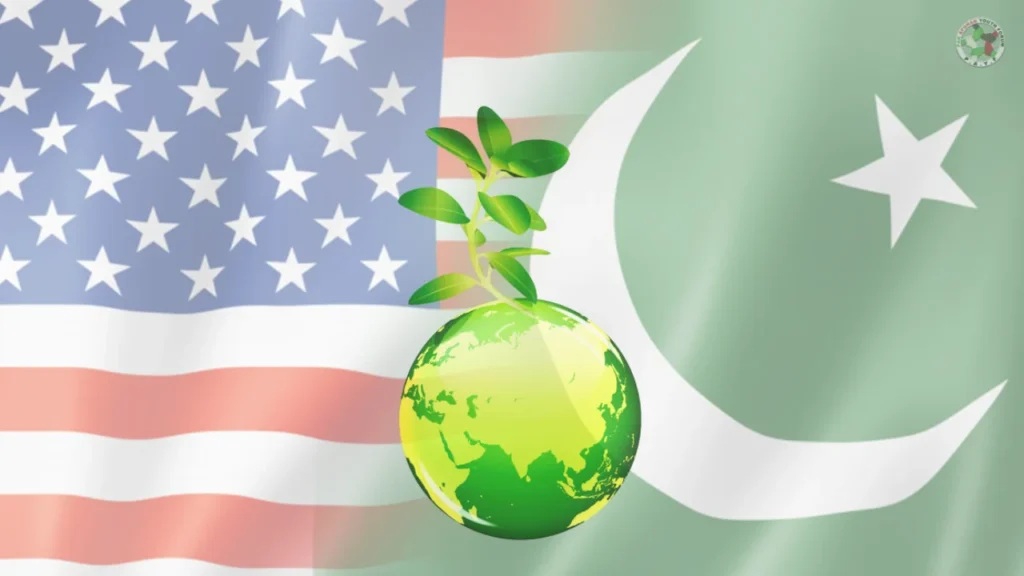The United States and Pakistan share a history of collaboration that extends beyond military partnerships into various sectors, including education, health, and notably, environmental sustainability. The US-Pakistan Green Alliance exemplifies this expanding relationship, emphasizing mutual goals in combating climate change and promoting sustainable development. Through dedicated efforts, both nations are working to address pressing environmental concerns while fostering economic growth and enhancing the quality of life for their citizens.
Climate Security Threat Paradigm
The US-Pakistan Green Alliance operates within the context of the climate security threat paradigm, which recognizes climate change as a significant non-traditional security threat capable of exacerbating existing tensions and conflicts. This paradigm shifts the focus from traditional military threats to the multifaceted risks posed by climate-related issues, including resource scarcity, forced migration, and economic instability, which can destabilize regions and ignite conflicts.
By addressing the environmental challenges collaboratively, the alliance underscores the importance of integrating climate considerations into national security strategies. This proactive approach not only mitigates potential conflicts arising from resource competition but also enhances both countries’ resilience to the broader implications of climate change, fostering sustainable peace and security in the region. The recognition of climate change as a threat multiplier situates the US-Pakistan partnership as a crucial element in advancing global stability through collective environmental stewardship.
Also See: Pak-US Partnership: A Legacy of Diplomacy and Shared Goals
Recent Developments in the US-Pakistan Green Alliance
The US-Pakistan Green Alliance has made significant strides in advancing sustainable development initiatives. A key component has been the launch of the five-year, $24 million ‘Climate Smart Agriculture’ project announced in November 2024. This project aims to equip over one million rural households with climate-resilient farming practices and advanced agricultural technologies that enhance crop yield while minimizing environmental impacts.
Moreover, the US has committed $130 million to the Gomal Zam dam project, which provides electricity to 20,000 homes, double agricultural output in the region, and improve water storage capacity, benefiting over 30,000 households. This demonstrates the tangible impact of US-Pakistan collaboration on local communities and the environment.

Funding and Economic Investments
The US has allocated approximately $1 billion to the Green Climate Fund to support climate change mitigation and adaptation projects in Pakistan, reflecting a strong commitment to enhancing Pakistan’s resilience against climate challenges. In agricultural investments alone, programs have generated over $1.47 billion in increased sales value and created more than 100,000 jobs, showcasing the economic benefits derived from environmental initiatives.
The US-Pakistan Green Alliance also aims to improve energy efficiency in Pakistan, targeting a reduction of carbon emissions through sustainable practices. Notably, a UNEP-backed project in cooperation with the Global Environment Facility is expected to promote energy-efficient lighting, targeting a reduction of 1.3 terawatt hours of electricity usage annually by 2030, equivalent to the emissions from removing 630,000 cars from the road.
Key Areas of Collaboration with Measurable Outcomes
The Green Alliance’s focus on three primary areas—renewable energy, climate resilience, and sustainable agriculture—has led to specific targets and measurable outcomes:
Renewable Energy: The goal is to increase the share of renewable energy in Pakistan’s energy mix to 60% by 2030. Projects are being developed to facilitate the generation of 10,000MW from solar energy installations.
Climate Resilience: Enhancing community resilience involves infrastructure improvements and better water management practices. For instance, the National Climate Change Policy (NCCP) emphasizes integrated water resource management to mitigate water scarcity, an urgent issue in Pakistan.
Sustainable Agriculture: The ‘Climate Smart Agriculture’ project incorporates innovative agricultural models and conservation practices which are essential for food security and economic stability amid changing climatic conditions.

Long-term Implications for US-Pakistan Relations
The integration of these initiatives within the US-Pakistan Green Alliance not only serves immediate environmental goals but also strengthens bilateral ties in multifaceted ways. Engagement in non-security areas has been shown to build trust and facilitate deeper cooperation across various domains, including trade and education. As sustainable development becomes a priority, both nations showcase a collaborative model that could potentially serve as a framework for international partnerships addressing climate issues globally.
With a comprehensive approach to climate action, the Green Alliance is set to enhance Pakistan’s capacity to confront the climate crisis, thus contributing positively to both countries’ strategic interests. The combined efforts of the US and Pakistan signal a commitment to not merely addressing environmental challenges but also reinforcing diplomatic ties and fostering collective security in an era marked by climate uncertainty.



